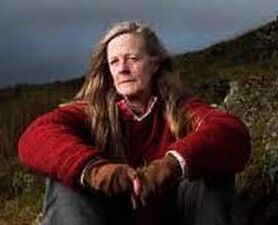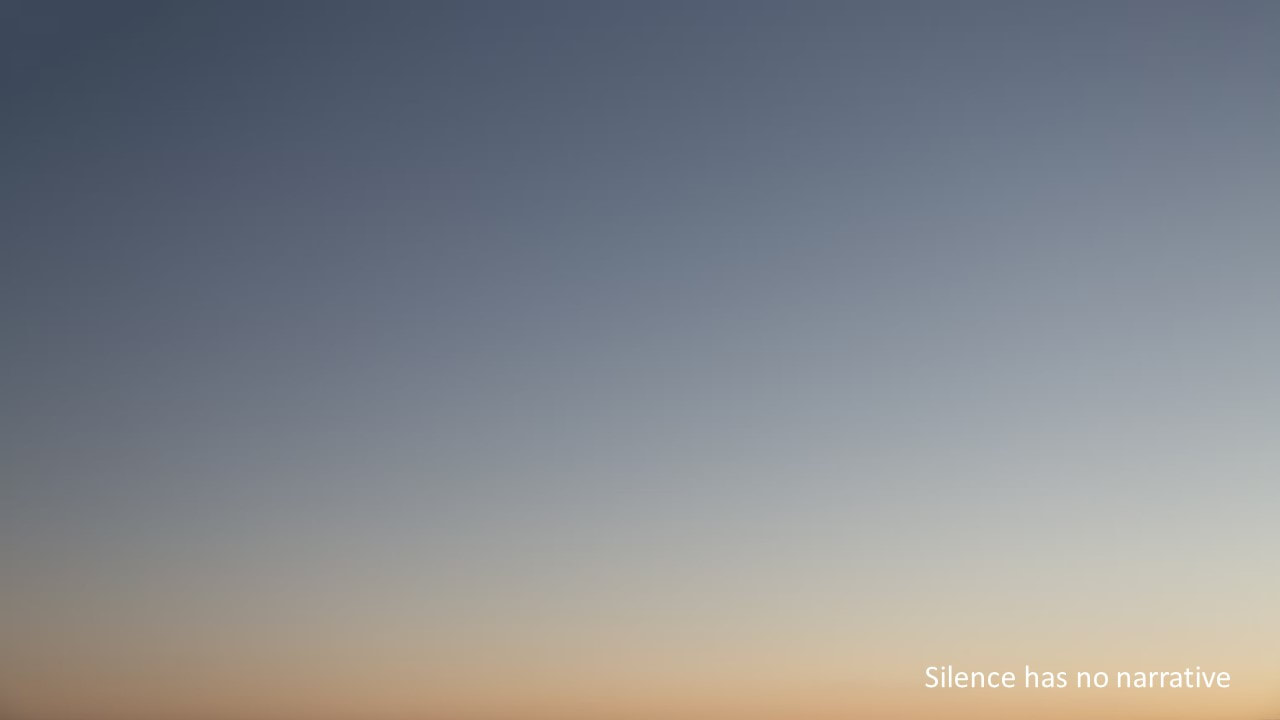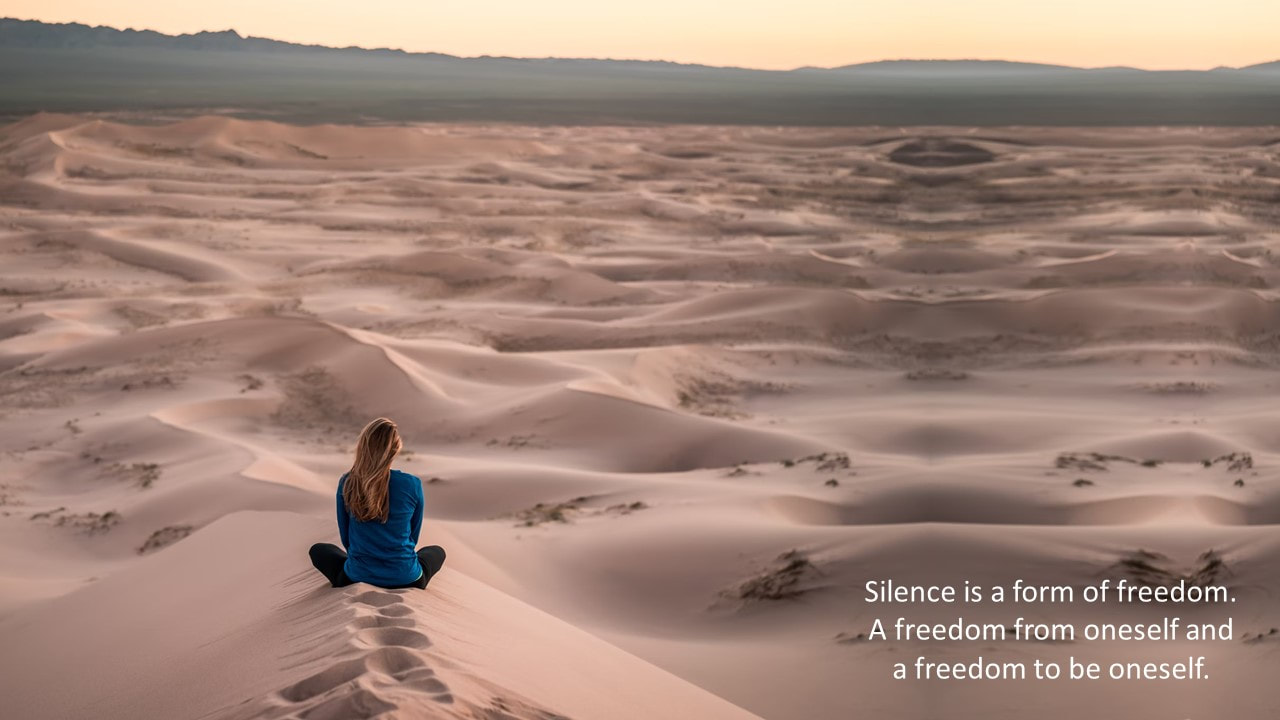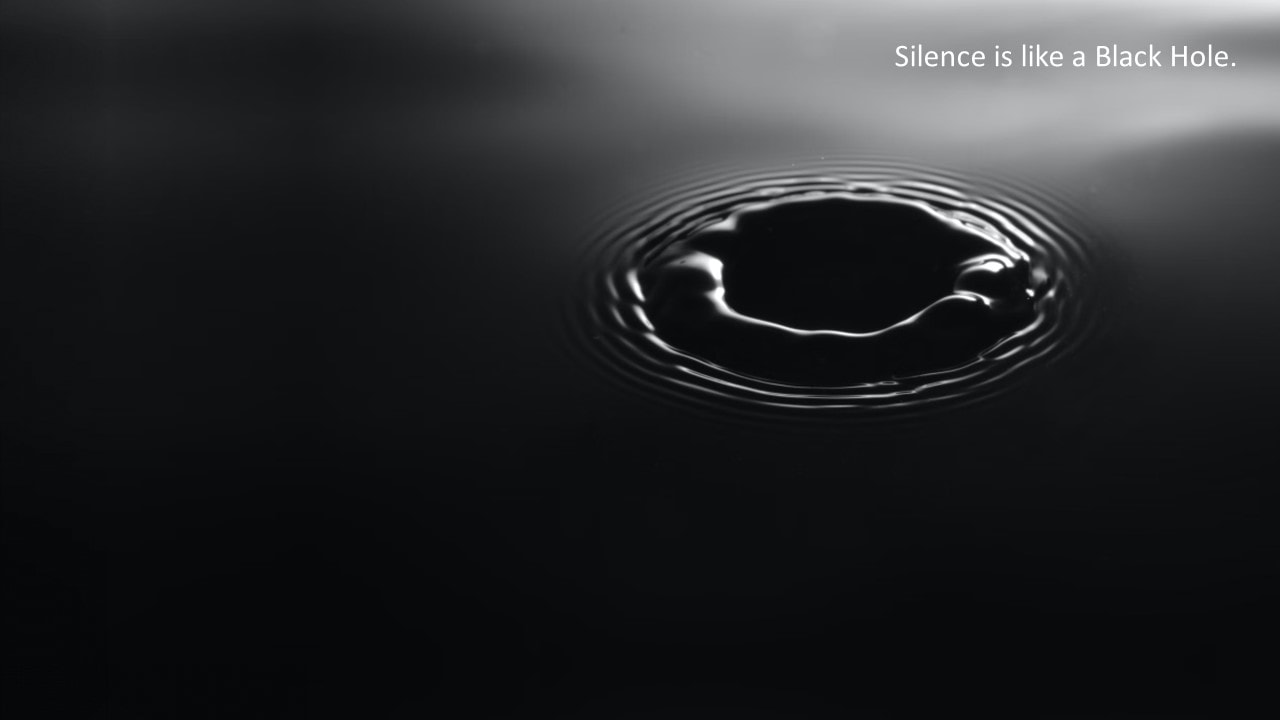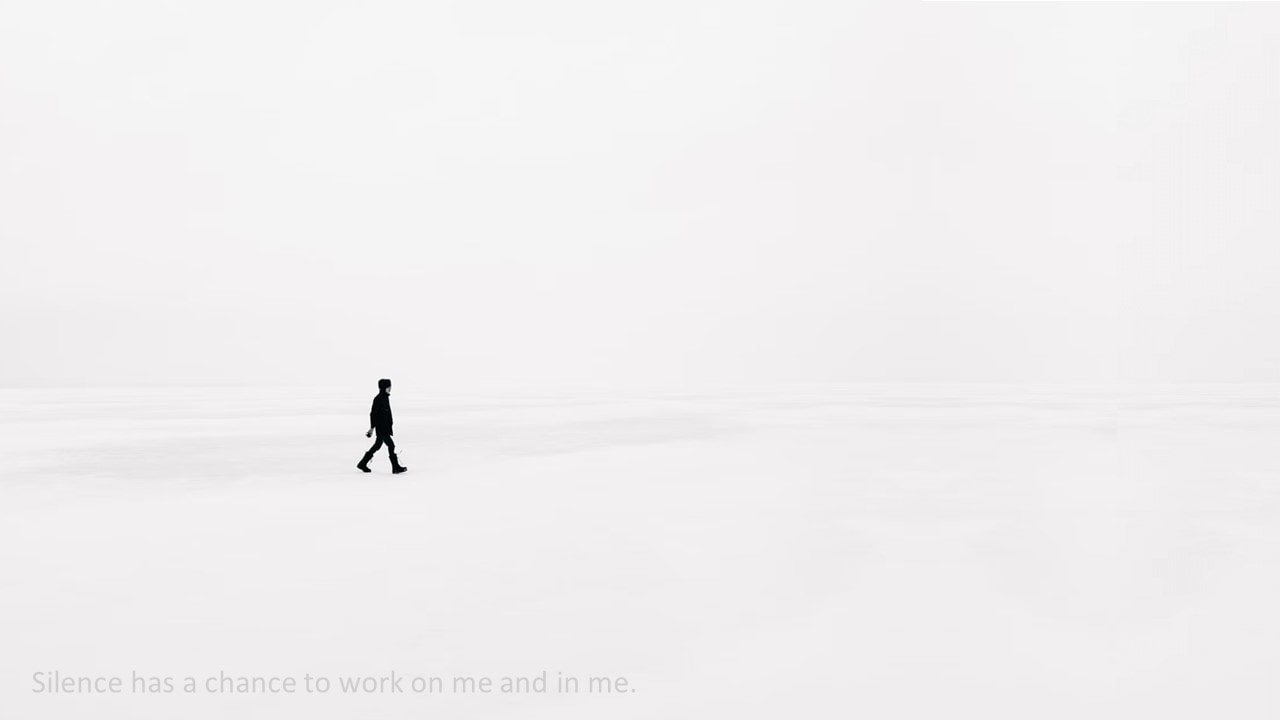In this series, some posts use short quotations but offer links to associated resources in the text below the image-backed quote. In other weeks, the short, image-backed quote are taken from a more extensive quotation from the month's author, given below the image. And in the last week of the month there are questions to encourage reflection on the month's quotations.
Quotes for each week of July will appear below in ascending date order.
Quotes for each week of July will appear below in ascending date order.
Sara Maitland, our author for July, grew up between Galloway, Scotland, and a school in Wiltshire, before studying English at Oxford. She is well-known as a feminist writer of short stories and longer fiction, in works that often feature magical realism, as well as for books on feminist theology. Today, Maitland lives a solitary life in an extremely remote crofters' cottage in the hills of Galloway.
Monday 4th July, 2022
Sara Maitland, A Book of Silence (Granta, 2008), 193.
Image : César Couto, Azores Islands, unsplash.com/@xcrap
This short but intriguing image-backed quote - especially from a renowned author of fiction - is from Sara Maitland's A Book of Silence (Granta, 2008), 193. You can read more about this book by clicking here and you can go to her 'A month with Sara Maitland' page, here.
Sara Maitland lives a solitary life in a secluded crofter's cottage high on the moorlands of Galloway in southern Scotland. Having studied English at Oxford, and now working as a mentor and lecturer in Creative Writing for the University of Lancaster, she is perhaps best known as a writer of short story collections, many of which have been shortlisted for numerous awards. These include On Becoming a Fairy Godmother (Maia, 2003) - see here - Moss Witch and Other Stories (Comma, 2013) - see here - and Women Fly When Men Aren't Watching (Virago, 1993) - see here. This last clearly nods to her roots as one of the early batch of feminist theologians in the UK, seen in books such as A Map of the New Coutry: Women and Christianity (Routledge, 1983) - see here. If you'd like a truly stunning book that combines her skill as a short story writer with her acumen as a theologian, then I'd highly recommend Maitland's Stations of the Cross (Continuum, 2009), paired with haunting paintings by the Huddersfield artist, Chris Gollon - see here. But be prepared for this to be an emotionally demanding read! However, Maitland came to far wider prominence in 2008 with the publication of, A Book of Silence, which was acclaimed not just within the Christian world but also in numerous secular reviews for newspapers and other media platforms - see the interview with her from this time in The Guardian, here. Although the book addresses different kinds of silence very directly, focusing on the eremitic tradition of the Desert Mothers and Fathers (for a feminist theologian, it's strange that she all but ignores the Desert Mothers!), along with the more romantic tradition of poets and artists such as Wordsworth, the book is perhaps more about solitude than silence: 'A Book of Solitude' might have been a better title to more accurately reflects what she is really exploring in this text. If the idea of solitude is something that you find uncomfortable, then Maitland's next book, How to be Alone (Macmillan, 2014), from Macmillan's secular 'The School of Life' series, - see here - will offer advice on learning to enjoy time in your own company. For those who prefer watching interviews or listening to someone speak, then there is an hour-long youtube interview with Sara about Aloneness, here, and a less than 20 minute audio summary of the book, here. Returning to silence, the theme of these weekly emails, there is a 40 minute lecture by Maitland on the theme of 'Landscape, Place, and Silence', given to a class of students at Leicester's De Montfort University, here.
Monday 11th July, 2022
Sara Maitland, A Book of Silence (Granta, 2008), 221.
Image: Patrick Schneider, Munich, unsplash.com/@patrick_schneider
The short quote in the image, above, is taken from the longer quote, below, from Sara Maitland's A Book of Silence (Granta, 2008), 213 and 221. You can read more about this book by clicking here.
'Self-emptying, loss of ego, handing one’s whole self over to God, in prayer and in practice, is the key not to just some future post-death ‘salvation’ but to an essential happiness and well-being now; empty of self … to be filled with God. To this end the desert hermits set about humbling their pride, liberating themselves from their slavery to desires, training themselves by rigorous self-discipline. Their means to this end was a level of asceticism which can seem masochistic or even deranged. But as they understood it, the disciplines and rigours of this life set them free: free from bondage to habits, to pointless desires and to the weakness of the will that Paul summarised so neatly: “That which I would do I do not do and do I even that which I would not do.” Free to lose ego, lose identity, strip naked before God and be loved. And at the heart of this discipline was silence; first external silence, then internal silence, peace of heart and mind, which could only come from the generous giving away of the self backed up by very hard work. And, beyond that, they hoped they might encounter the silence of God.
... There is something hideous, especially to a contemporary Western sensibility, about a systematic and determined attempt to break down, or thin out the boundaries of the self and become open to, participate in, the undefined, illimitable freedom of the divine. … Silence is the ground for this work … It is, in itself, a form of freedom, it generates freedom, free choices, inner clarity, strength. A freedom from oneself and a freedom to be oneself.
Monday 18th July, 2022
Sara Maitland, A Book of Silence (Granta, 2008), 287.
Image: Julian Böck, Germany, unsplash.com/@julian_bck
The short quote in the image, above, is taken from the longer quote, below, from Sara Maitland's A Book of Silence (Granta, 2008), 287. You can read more about this book by clicking here.
'Sometimes I think that silence is like a Black Hole: in a Black Hole the gravitational force is so great that nothing, not even light, can escape outwards. Anything that comes within the range of that force is irrevocably attracted, sucked in, compressed, squeezed, compacted until it collapses under the concentration of its own mass. Time itself slows down. As if in slow motion, once the process has begun, any object – even a human ego – will be stretched, warped, twisted and thence – the physicists are not quite sure what happens next either – perhaps into an alternative universe beyond the laws of physics and psyche, into a new universe, into God. This is death, of course; but it can also be birth, depending on the position of the observer. Whatever there is the other side of the singularity may be watching with excitement the slow transformation, understanding the breakdown of all the rules, waiting with a fierce joy to welcome [us] into the infinite.'
Monday 25th July, 2022
Sara Maitland, A Book of Silence (Granta, 2008), 186-87.
Image: Émile Séguin, Montreal, Canada, emilseguin.com
The quote in the image, above, is taken from Sara Maitland's A Book of Silence (Granta, 2008), 286-87.
The last week of each month in the 'Quoting Silence: A month with ...' series offers some questions to help you reflect further on the month's quotations and images, and how they resonate with your own spiritual journey and relationship with God.
Before reflecting on this month's quotes and images, take time to re-ground yourself in your body.
Perhaps take a few slow breaths, feel your feet on the floor and be aware of how your body feels in this moment.
1) Read back over the this month's quotes and spend time looking at their associated images. As you do so, note a phrase or image that draws your attention. If this is a phrase, you might like to write this out in a journal or on a piece of paper where you will see it regularly. Consider reading aloud several times what you have written to help the words sink more deeply into your heart. If an image resonates with you, let your gaze rest lightly on it for a couple of minutes, allowing it to speak to your heart. Consider using it as a screensaver for a while, or perhaps print it out and place it somewhere that you will see it often..
2) What emerges as you sit with the phrase or image that attracted your attention? Does a new insight or a question, emotion or sensation arise? Take some time to write down and ponder on whatever you notice.
3) Where can you see hope in the midst of what is emerging in you, for yourself, your neighbour, your community, or the planet? How might this impact your daily life and those with whom you share it?
4) In the days and weeks to come, how can you stay open to what you have discovered from your reflections?
Take some time to give thanks for the hope that you have found in this month's quotes and images.
|
To return to the Quoting Silence: A month with ... Collection, click the button.
|
